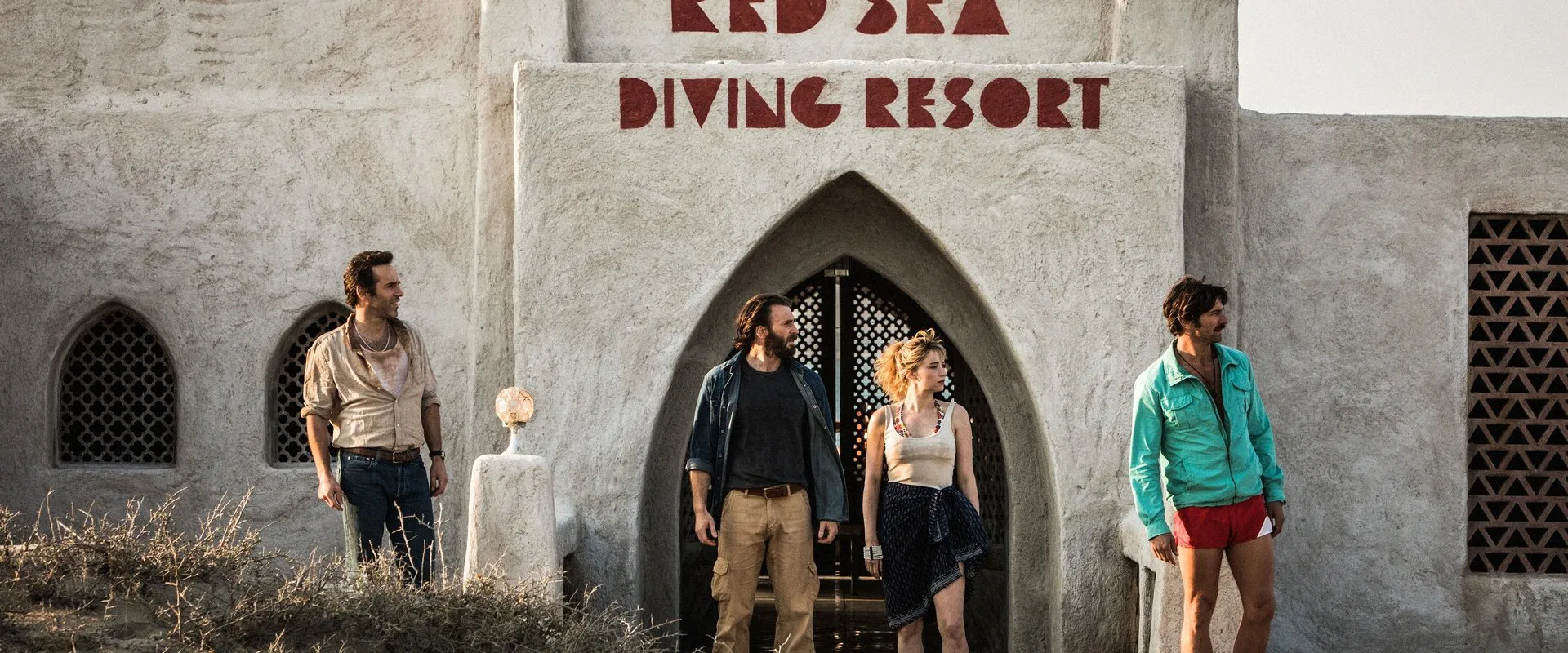There is something interesting about the “based-on-a-true-story” thriller, that genre with which Hollywood is infatuated—it has the chance to situate historical spectacle in a slick transport suit and drive it with wild abandon under the bridge of plausibility. “The Red Sea Diving Resort,” the directorial debut of Gideon Raff, is one such film, lively and well-produced, featuring Chris Evans as a Mossad member who seems to be auditioning for a secret agent beach calendar. It makes for an agreeable, occasionally entertaining, but ultimately forgettable movie, basically the younger cousin of “Argo” who puts in some effort at the family reunion, but never once threatens to outdo its subtle origins.
The true story at the heart of it is marvelous. In the early 1980s, Israeli intelligence—posing as hotel owners on the coast of Sudan—smuggled thousands of Jewish Ethiopians to safety, transporting them by land and sea under the watchful eye of unfriendly authorities. This sets the stage for suspense: peril, moral urgency, and at least three shirtless appearances by Chris Evans before a daring escape. The issue isn’t the truth of the story but the connective package. You feel as though, buried neatly in the genre traps and swelling music, a symphonic and complicated story is being polite while it awaits its turn.
The film makes no bones about wanting to be thrilling. Chris Evans’s Ari Levinson is first an ingenious planner, then he’s a dashing hero, an amalgam of Bond, Moses, and an REI catalog model. Evans does indeed surprise, as he re-tracts his natural charisma enough to let his supporting cast express themselves — even if the screenplay continually puts Evans front-and-center to engage in more top-secret rogue missions. For those of you who lament the loss of the star vehicle quartet, consider ”The Red Sea Diving Resort”, Evans has to take his shirt off with what can only be construed as contractual regularity.
Surely this is the place where the film begins to trip over its own altruistic intentions. At every opportunity, the camera’s gaze lands on Ari and his Israeli operatives, as unquestionable saviors of the Ethiopian refugees. Michael K. Williams, playing Kebede Bimro, who was the local operative and emotional heart of the operation, is irredeemably underwritten. He appears to merely pass his countrymen off as a dangerous white handoff, where Kebede’s jeopardy and agency are only narrated and not experienced. It’s akin to seeing “The Great Escape” play out as Steve McQueen all the chase scenes, Richard Attenborough only initiating plans from the wings. Considering that the core conflict is about ’heroism’ in the face of untold peril, it feels like some misplaced sleight-of-hand to have those most in jeopardy and those who risk the most to aid them on the outer edges of the film. This imbalance becomes glaringly apparent in the film’s finale, which—like so many movie climaxes pulled from the Hollywood grab-bag—devolves into an overly-saturated action setpiece. Trucks plow through the desert, soldiers arrive conveniently late, and I fully expected a Dodge Charger to come screaming onto the tarmac with Vin Diesel at the wheel. Did that happen? Not quite, but history is never so kind as to make rescues so timely to the second, but drama ultimately nods deference to accuracy so that our heroes can get on the last flight out as the strings rises. Watching it, I felt like not only had I seen it before, but probably twelve other times before, each with a more expensive budget and more fantastical explosions. Fast & Furious: Exodus.
To the film’s credit, there are pleasures found within the film’s details: unrelated tourists showing up at the Zenana resort, well-below the grounded-in-reality tension between our “heroes” and the fictional Sudanese Colonel (Chris Chalk, whose character arc, like so much else, deserves a better treatment in the script). Ben Kingsley with a world-weary beard offers a world-weary “wisdom”—because of course he does. Haley Bennett and Michiel Huisman do their best with the roles primarily designed to be canopied by Evans, during tension and cocktails.
“The Red Sea Diving Resort” is not a bad movie; it moves with confidence, and if you’re in the right frame of mind for dose of inspirational espionage—perhaps with a bowl of popcorn—you could do a lot worse. But it cannot shake the feeling, even worse than the salt air off of the Red Sea, that something important has come adrift from the shoreline. The people whose bravery made this rescue happen: the Kebedes and those risking everything in hope—merit more than a cut to credits. Journalism, like capers, is always in danger of erasing history to make room for the dramatization. We need stories—and films—that are brave enough to share the limelight.
Yet, even still, sometimes a movie is just here to say that, heroics or not, there are always bigger stories than stories we see, and lives messier than lives we can fathom. "The Red Sea Diving Resort" is a fun time, and sometimes like a beach vacation, you leave wanting a little longer, outside of the resort.


